Project partners
Below you will find a description of our partners and their contribution to the BATTERFLAI project.
Project partners
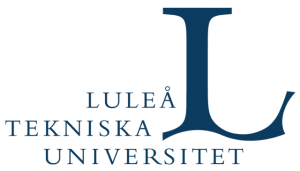
Luleå Technical University (LTU). The Biochemical Process Engineering research group at LTU (Department of Civil, Environmental and Natural Resources Engineering) consists of 18 people working with biomass pretreatment, design and use of enzymes and microorganisms for production of fuels, chemicals and materials from lignocellulosic substrates. The research group has been active since 1989 in the field of valorization of biomass. Moreover, a recently installed semi-continuous organosolv biomass pretreatment system allows the group to study the fractionation of lignocellulosics for different applications. This expertise in biomass fractionation is important for the successful and novel production of lignin-based flotation collectors. The group leads/participates in 3 large ongoing National projects on biomass organosolv fractionation for different applications. The group has experience in a variety of international projects including EU projects. LTU is one of the leading Scandinavian universities for education in the field of mining.
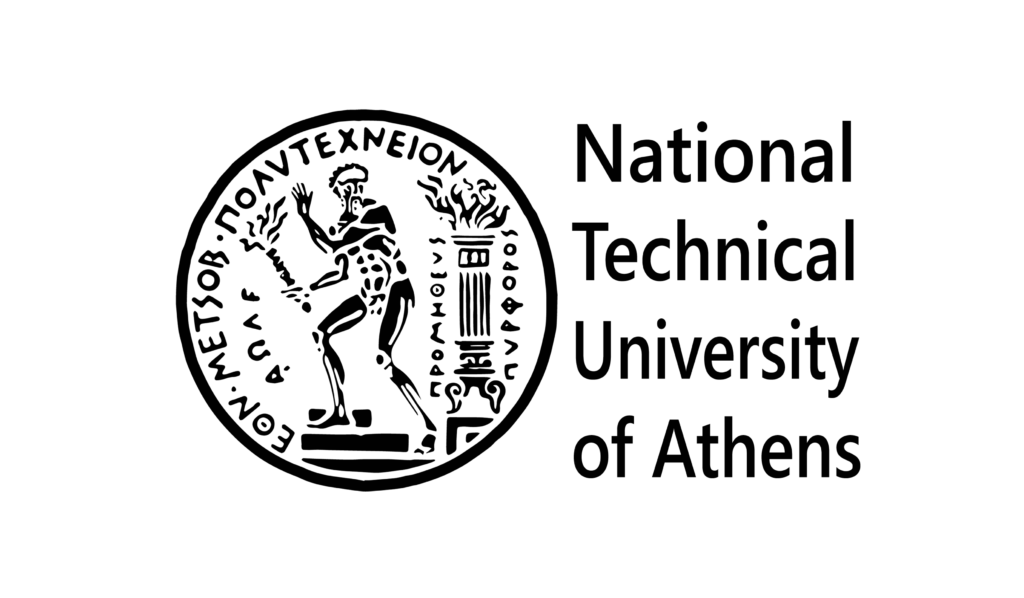
The National Technical University of Athens (NTUA) is the oldest and most prestigious technical educational institution in Greece with 9 schools and more than 7000 students. The Laboratory of Metallurgy AND Laboratory of Mineral Processing of the School of Mining and Metallurgical Engineering will be involved in the LIGNOFLOT project. The research team has extensive expertise in the whole value chain of RM and is involved in numerous EU and private funded research as well as educational projects. In the fields of mineral processing the team has significant expertise in mineral processing of ores, coal, industrial minerals and rocks, Physical Chemistry of Surfaces (liquid-fluid, liquid/solid and air/solid interfaces), physical chemistry and hydrodynamics of flotation (reagents, surface charge of minerals, flotation cells), fine and ultra-fine particles interactions and processing, colloids, solid waste processing and recycling, etc. The team has participated in numerous research projects relevant to LIGNOFLOT, dealing with Fundamental and applied research on flotation, Hydrodynamics of flotation cells, Recovery of by-products from mineral processing wastes, Gold Processing and Flotation. In the field of extractive industry the team coordinated EURARE EC FP7 Collaborative project for the Development of a sustainable exploitation scheme for Europe’s Rare Earth ore deposits and SCALE H2020 project for the Production of scandium compounds and scandium aluminium alloys from European metallurgical by-products. The team also participates in H2020 projects like ENSUREAL: Integrated cross-sectorial approach for environmentally sustainable and resource-efficient alumina production and SIDERWIN: Development of new methodologies for industrial CO2-free steel production by electrowinning.

KGHM Cuprum sp. z o.o. Centrum Badawczo-Rozwojowe (KGHM Cuprum Ltd. Research & Development Centre), continues the business activity of the Cuprum Research and Design Centre for Copper Mining, which was established in 1967 as part of the Copper Mining and Metallurgical Complex in Lubin. Their main duty was to provide a comprehensive research and design service for the Legnica-Głogów Copper Basin. Cuprum has vast experience in researching and designing many new processes in the mining industry, fulfilling new requirements and providing solutions that represent a response to the challenges encountered by Polish Copper. This experience is critical for the successful execution of pilot scale trials of lignin-based flotation reagents and the subsequent evaluation of the results. KGHM Cuprum undertook the planning and implementation of the Lubin- Głogow Copper Region development, designing this integrated industrial district with its own technical infrastructure, including four copper mines and three concentrators – Lubin, Polkowice, Rudna and Sieroszowice – along with accompanying facilities, such as machine production and repair workshops, tailings ponds and road and rail transport bases. Importantly, the company’s activity is not limited to the copper deposit region on the Foresudetic Monocline, but is present also in a number of other plants and deposits in Poland and abroad. KGHM Cuprum is 100% owned by KGHM Polska Miedź (KGHM Kombinat Górniczo-Hutniczy Miedzi Polish Copper). Cuprum participated in many European Research initiatives, such as 5, 6 and 7 Framework Programs, Horizon 2020 (Clotadam, Bioshale, Promine, Biomore and others) as well many National Programs featuring specialized interventions such as mineral processing, environmental protection, waste management, geology, hydrogeology, mining, rock mechanic mechanization, energy technologies and others.
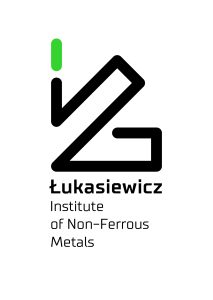
Institute of Non-Ferrous Metals (IMN) is a research centre of the Polish non-ferrous industry. Complex activities cover all stages of metallic materials production: from ore treatment to technologies for production of modern product meeting all environmental standards. Many of the developed solutions became implemented in small and medium enterprises, not only in non-ferrous industry, but also in other branches. The services provided cover: R&D targeted for development of new technologies, optimisation of industrial processes, modernisation of production lines, construction of equipment, measurement and analytical services. Our customers are provided with access to the newest technologies, modern laboratories and high capacity pilot installations. The level of our services has been appreciated by such companies as KGHM Polska Miedź S.A., ZGH Bolesław S.A., KGHM Ecoren S.A., or Hutmen S.A. Long-lasting scientific cooperation with the leading universities in Poland, institutes of the Polish Academy of Science and long-standing experience resulting from participation in EU Framework Programmes have created good conditions for continuous development of the research personnel and possibilities to provide customers with competitive and innovative solutions by the Institute.
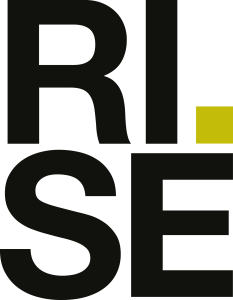
RISE (Research Institutes of Sweden AB) is the Swedish Research Institute and innovation partner. In international collaboration with industry, academia and the public sector, RISE ensures the competitiveness of the business community and contribute to a sustainable society by supporting and promoting all manner of innovative processes. RISE is an independent, state-owned research institute with 2,300 employees, that offers unique expertise and about 100 testbeds and demonstration facilities, instrumental in future-proofing technologies, products and services. In 2016, the former institutes of Innventia, SP Technical Research Institute of Sweden and Swedish ICT merged to form RISE. The merged RISE drives advanced research in a broad spectrum of areas that are divided into six divisions. RISE has a long history of acknowledged high-quality research and conducting assignments in each of these divisions. RISE is a non-profit organisation with the headquarters located in Gothenburg, but with employees all over Sweden.RISE has collaborated with Boliden for several years, mainly with a focus on flotation processes that has significantly contributed to expertise about the chemistry of collectors and depressors used for flotation. The BATTERFLAI project will further deepen the knowledge in this field. An innovative way of measuring hydrophilicity and hydrophobicity on small amounts of processed materials using Dynamic vapor Sorption (DVS), has proven to be a powerful tool to follow changes in floated or depressed materials. In BATTERFLAI, this technique will be used to evaluate the hydrophobicity of samples taken, but RISE will also perform other analyses such as X-Ray Powder Diffraction (XRPD) and be a speaking partner in questions with regard to inorganic- and surface chemistry.

Boliden is a metals company with a focus on sustainable development. Our core competence lies within the fields of exploration, mining, smelting and metal recycling. Boliden has more than 5,700 employees and an annual turnover close to 5 BEUR. The Process Technology group is focused on process development and improvement at all Boliden sites. This includes development and evaluation of flowsheets, unit operations and new reagents. Our key competence is in flotation and leaching. Boliden Mineral’s Process Technology group has well-developed own R&D-labs and pilot plant in Boliden with a total of some 8-10 lab technicians and 16 senior staff at level engineer or higher. Furthermore, most mine sites have their own labs should part of the work need to be conducted there.
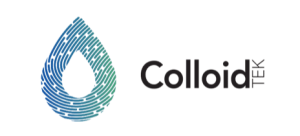
ColloidTek Oy is a spin-off company from Tampere University of Technology. ColloidTek combines tens of year’s research in materials sciences and automation. ColloidTek analyzes fingerprints of liquids and works for commercializing an online analyzer for recognizing changes in them. Collo online sensor uses a multi-frequency resonance analysis developed in collaboration with Outotec for sedimentation and flotation process online analysis. The analysis provides a spatially local reading on permittivity and conductivity of the surrounding liquid, which can be used to e.g. recognize gas bubbles, particles or their combinations. Online monitoring allows highly efficient raw material use, increase process quality and help customers to understand complex liquids/slurries better. ColloidTek is working with mining related companies like Outotec and Nordkalk and ColloidTek has experience of an EIT RawMaterials project.

Hellas Gold SA is the largest company currently active in Greece, and from 2012 belongs to Eldorado Gold Corp. The company is consisted of 3 mining facilities, in operation, development and under construction as well. Mavres Petres is an operational Mine since 1957 with at least 2 more years life (current reserves) that produces PbS and ZnS at Stratoni Mining Facilities. Olympias Mining Facilities are also in operation that produces auriferous arsenopyrite, PbS and ZnS concentrates and after the construction of a flash smelter in the future Cu, Au and Ag as final products. Skouries mining facilities is currently under construction, expected to be in production at 2019 with Cu and Au as final products. Hellas Gold SA, possesses the majority of mining concessions at NE Chalkidiki, and is in continuous exploration in order both to prolong the life of the existing known mines as well as to discover new deposits. Hellas Gold SA activities involve: Near and in mine exploration, Cut & Fill, Open pit, Backfilling and Pastefilling, Flotation, Barytometric separation, Flash smelting pyrometallurgy, Surface and underground milling, Resource modelling, Block modelling, 3D modelling, QA/QC analysis, (Leapfrog 3D, Datamine RM, Gemcom GEMS), Quality control laboratory, Waste management (Non- hazardous and Hazardous tailing facilities, and Environmental awareness (Large scale continuous environmental monitoring (Water, Air, Noise, Vibration, Soils), online public dissemination of measurements).

KHHM Polska Miedz S.A. is a company with traditions reaching back 50 years. KGHM is a global producer of mined copper and the II-nd producer of silver in the world. Other products of KGHM include gold, lead, sulphuric acid and rock salt. KGHM facilities employ over 18 000 people, while another 10 000 people are employed by subsidiaries of the KGHM Group. KGHM use modern methods in the extraction and processing of copper ore, along with modern organizational and management systems. KGHM offers environmentally friendly production of copper, silver and other resources of the highest quality. The development of modern technology is key for this processing. KGHM places great emphasis on development and implementation of new technologies. Research and development is closely linked with the company’s strategy, which is targeted at intensifying production, reducing costs, diversifying the product line and minimizing any negative environmental impact by applying the best available technology and developing new solutions. KGHM runs technologically advanced exploration and smelting activities. The company owns assets located on three continents. It focuses on the extraction of ores, production of copper and other non-ferrous metals. Polish copper deposits – one of the biggest in the world – are exploited by three underground mines: Lubin, Polkowice-Sieroszowice and Rudna. The extracted material is enriched in the Ore Processing Plant, while the production of copper, silver, gold, lead and other metals takes place in smelters: Głogów, Legnica and Cedynia. On the other side of the ocean, KGHM owns six mines: Robinson, Carlota (USA), McCreedy West, Morrison (Canada) and Franke and Sierra Gorda (Chile). Besides copper, these mines also produce molybdenum, nickel, gold, palladium and platinum.

LTU Business expertise in business development is important for the successful development and execution of this project Go-to-market strategy. The vast experience in business development makes LTU Business a trusted partner for innovation management on the international arena including in numerous European projects in industry sectors including mining, renewable energy, ICT, etc. LTU Business AB is the largest business development company in northern Scandinavia, specialize in business development, innovation management and professional education. In addition to being the official Technology Transfer Office and Industry Liaison Office for Luleå University of Technology, LTU Business serves clients from both the private and public sector. Today LTU Business holds a thirty-five year track record of running industry collaboration efforts and student programs in order to create growth in SMEs in northern Sweden, a region where several raw materials-related companies are launched every year.


